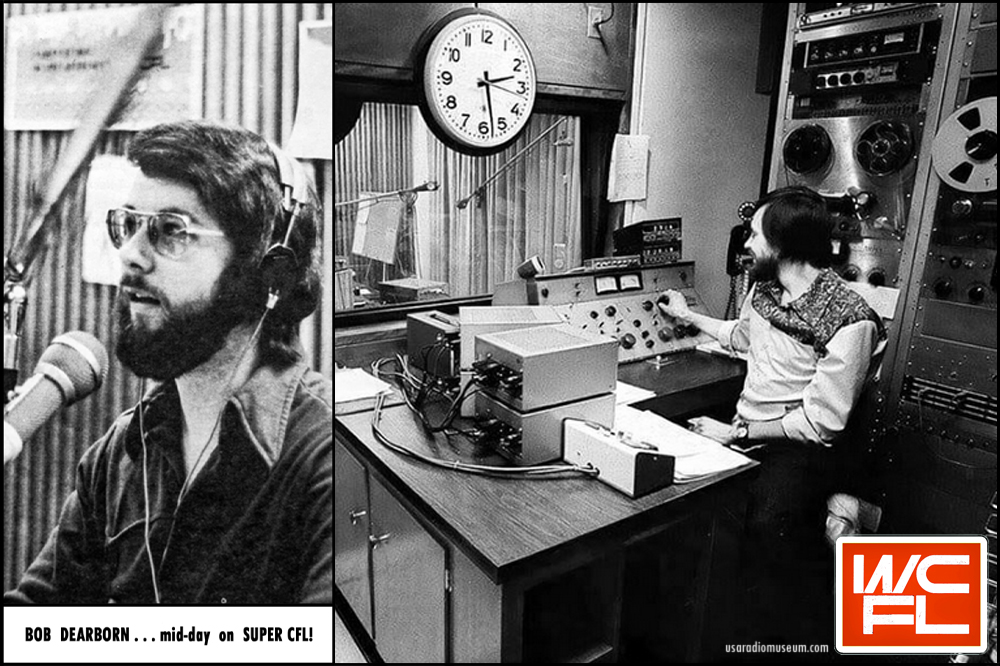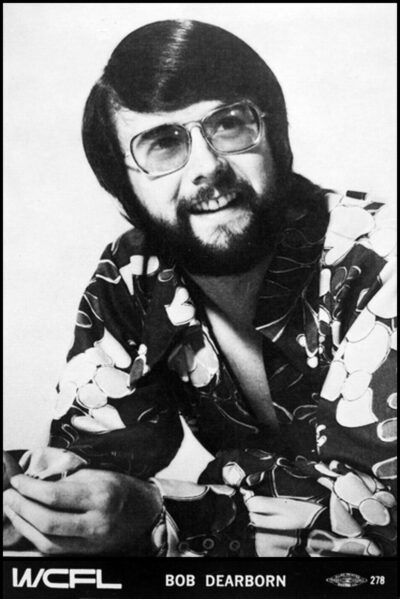Chicago Radio Royalty: Reflections of Bob Dearborn’s Career in the Windy City Bob Dearborn was a popular personality on WCFL during its Top 40 era.
Chicago Radio Royalty: Reflections of Bob Dearborn’s Career in the Windy City
Bob Dearborn was a popular personality on WCFL during its Top 40 era. He joined the station in 1970 and became well-known for his smooth delivery and engaging style. One of his most famous contributions was his detailed analysis of Don McLean’s song “American Pie,” which gained widespread recognition and added to his legacy.
Dearborn’s career spanned various roles and stations, including WIXY in Cleveland, WPTR in Albany, and WKNR in Detroit, before his time at WCFL. At WCFL, he hosted shows in different time slots, including late-night and morning drive, and played a key role in the station’s success during its competitive years against WLS.
After WCFL transitioned away from contemporary music in 1976, Dearborn continued his career at other stations, including WTAE in Pittsburgh and later as the host of the syndicated show “Night Time America.”
Bob Dearborn’s analysis of Don McLean’s “American Pie” is legendary in the world of radio. While working at WCFL in Chicago in late 1971, Dearborn received numerous listener requests to explain the song’s cryptic lyrics. Recognizing the growing curiosity, he meticulously broke down the song’s metaphors and references, creating a detailed written analysis. His interpretation resonated deeply with listeners, and WCFL was inundated with requests for copies of his analysis. Bob’s interpretation of American Pie became so popular that it was shared with other radio stations and remains a cherished piece of music history.
Don McLean’s “American Pie” is more than just a song—it’s a cultural phenomenon that has resonated deeply with audiences since its release in 1971. The track captures a pivotal moment in American history, reflecting the social and political changes of the 1950s and 1960s. Its enigmatic lyrics, filled with allegorical references, have sparked decades of analysis and debate.
The song’s iconic line, “The day the music died,” refers to the tragic plane crash in 1959 that claimed the lives of Buddy Holly, Ritchie Valens, and The Big Bopper. This event marked a symbolic loss of innocence in rock ‘n’ roll and American culture. Beyond this, “American Pie” explores themes of disillusionment, the evolution of music, and the shifting cultural landscape of the era.
Its impact extends beyond music, influencing movies, TV shows, and even inspiring a namesake film series. In 2017, the original recording was selected for preservation in the National Recording Registry by the Library of Congress, highlighting its cultural, historical, and artistic significance.
In 1971, the station’s nighttime signal reached a vast audience across North America, amplifying the demand. Dearborn’s thoughtful approach to the song’s themes—such as the loss of innocence, cultural shifts, and the impact of rock ‘n’ roll—cemented his reputation as a perceptive and engaging broadcaster, further cementing his reputation as an influential radio personality.
WCFL was originally established in 1926 by the Chicago Federation of Labor, which is why it was known as “The Voice of Labor.” The station was created to promote labor issues, support union activities, and provide a platform for working-class voices. During its early years, WCFL focused on labor-related programming, public affairs, and cultural content that resonated with the labor movement.
However, by the 1960s, WCFL transitioned to a Top 40 music format to compete with other popular stations like WLS-AM. Despite this shift, the station retained its historical connection to the labor movement through its ownership and branding. The “Voice of Labor” tagline became more of a nod to its origins rather than a reflection of its contemporary programming.
WCFL itself was a significant player in shaping the Top 40 format, with its innovative programming and talented lineup of DJs like Dearborn, Ron Britain, Dick Biondi, Ted Anthony, Jim Stagg, Barney Pip, Joel Sebastian, Jim Runyon, and more. These figures contributed to WCFL’s legacy as one of Chicago’s iconic radio stations. Bob Dearborn was on WCFL in Chicago for approximately six years, from 1970 to 1976.
This blend of history and modernity made WCFL a unique presence in Chicago’s radio landscape.
Bob Dearborn | WCFL | November 26, 1971
Audio Digitally Remastered by USA Radio Museum | A USARM Special Acknowledgement: This audio recording is courtesy of Mark Yurko, of Langhorne, PA.
Bob Dearborn retired from his long and impactful broadcasting career in 2009. After decades of working in radio, including his time at WCFL and other stations, he stepped away from the industry to enjoy a well-deserved retirement. His contributions, especially his insightful analysis of “American Pie,” remain a memorable part of his legacy.


